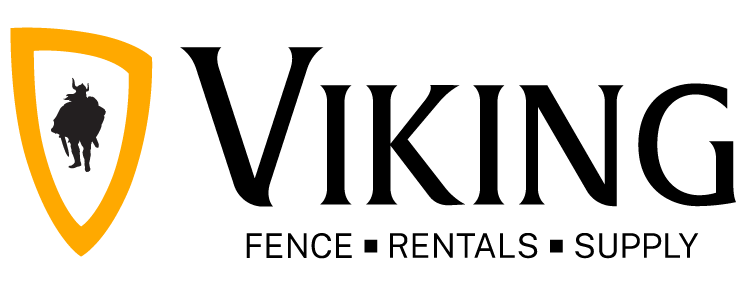When you’re planning any type of event, the health and safety of your guests need to be your top priority. Proper sanitation is essential, whether you’re organizing a music festival, an outdoor wedding, or whatever else it may be.
It’s not just for the comfort of your guests – it’s an actual regulation. OSHA mandates accessible hand washing facilities with clean water, soap, and towels, ensuring workers can maintain hygiene, especially where bathrooms are not readily available.
So, what is needed at a hand washing station? How can you set up a portable sanitation area that’s in line with OSHA regulations, ensuring your event is safe and you don’t need to worry about breaking serious regulations? Stay tuned – we’ll explain everything you need to know.
Overview of Portable Hand Washing Stations
Portable hand washing stations are convenient, self-contained units designed to provide hygiene solutions in areas without access to running water. These stations are ideal for outdoor events, construction sites, festivals, and any other setting where maintaining cleanliness is crucial.
Typically, portable hand washing stations come equipped with water reservoirs, soap dispensers, paper towel holders, and foot pumps or hands-free operation systems to minimize the spread of germs.
The design of these units ensures easy mobility, making them simple to set up in various locations. Many stations also include features like multiple sinks to accommodate high-traffic areas, allowing multiple users to wash their hands simultaneously.
By offering a quick and efficient way for people to clean their hands, portable hand washing stations contribute to maintaining health standards and complying with OSHA hand washing station requirements at any event or site.
What is Needed at a Hand Washing Station?
A well-equipped hand washing station is more than just a sink and soap, but what is needed at a hand washing station, exactly? Let’s take a look at the key elements you’ll need for a safe, hygienic, compliant hand washing station.
Fresh Water Tank Capacity
The fresh water tank capacity determines how many people can use the station before refilling is required. For high-traffic events or work sites, larger tanks are necessary to ensure consistent water supply throughout the day.
Most portable stations offer tanks with capacities ranging from 10 to 20 gallons, depending on the expected usage. Choosing a unit with the right tank size is crucial to avoid disruptions and maintain a smooth flow of users.
Hot vs Cold Water Availability
While cold water is standard at most portable hand washing stations, the availability of hot water can be a nice surprise for users, especially in cooler areas. Hot water is also more effective for breaking down grease and grime, making it a great choice for construction sites and food service areas.
Some portable units are equipped with water heaters, offering a more comfortable and hygienic option for users. However, cold water stations are typically more affordable and easier to maintain, and hot water access isn’t usually a health requirement.
Soap and Dispensers
Soap is a must-have for any hand washing station – there’s almost no point washing your hands without soap. Hand washing stations with built-in soap dispensers are a great choice, because the soap is easy to refill and use.
Hands-free dispensers, usually operated by foot pedals or sensors, are ideal for reducing the spread of germs. Make sure the dispensers are sturdy and that liquid soap is consistently available to encourage proper hand hygiene.
Hand Sanitizer as an Alternative
Sometimes, hand sanitizer is a suitable alternative to soap. Some people have sensitive skin and would prefer not to use soap when they can’t see exactly what’s in it, while others simply prefer using sanitizer and feel as though it’s a safer, more hygienic option.
Hand sanitizers are effective for killing germs when soap and water are unavailable, and they eliminate the need to dry your hands. Some portable hand washing stations come with built-in hand sanitizer dispensers, while others may have a dedicated area to add one.
Waste Water Disposal System
Efficient waste water disposal is critical for maintaining cleanliness and ensuring compliance with OSHA regulations. Portable hand washing stations are designed with built-in waste water tanks to collect used water.
It’s important to select a station with a tank large enough to handle the event’s foot traffic and to arrange for proper disposal once the tank is full. Many stations also include easy-to-drain systems for hassle-free maintenance.
Paper Towels vs Air Dryers
Drying hands properly is just as important as washing them. Most portable hand washing stations offer paper towel dispensers, as they are simple to refill and use. Paper towels are also more hygienic, as they allow for single-use drying.
Some higher-end stations may include air dryers, which eliminate the need for paper towels but require access to a power source. When choosing between the two, consider the environmental impact, maintenance requirements, and what the guests at your specific event may prefer.
Additional Features for Enhanced Hygiene and Compliance
So, we’ve covered the basics of what is needed at a hand washing station, but there are some additional features that you need to think about as well. Let’s take a look.
Foot Pump Operation vs Hand-Operated Faucets
Foot pump-operated faucets offer a hands-free solution that minimizes contact with surfaces, reducing the spread of germs and promoting better hygiene. This feature is especially valuable in high-traffic areas or events where cross-contamination is a concern.
Hand-operated faucets, while more traditional, may require more frequent cleaning and can potentially harbor germs. Generally, most guests feel more comfortable using foot-operated faucets.
Lighting for Night Use
For events that run into the evening or take place in dimly lit areas, providing adequate lighting at hand washing stations is essential. LED lighting or solar-powered lights can be installed to ensure visibility and safety for users.
Proper lighting makes things easier for guests and also ensures compliance with safety standards, as people can wash their hands effectively, even after dark. This feature is great for outdoor festivals, construction sites, or emergency situations where 24/7 access is needed.
Accessibility Features
To ensure inclusivity and compliance with ADA (Americans with Disabilities Act) regulations, it’s important to offer hand washing stations with accessibility features. These include lower sink heights, easy-to-reach soap and towel dispensers, and wide enough access for wheelchair users.
Providing accessible hand washing stations ensures that everyone, regardless of mobility, can maintain proper hygiene. This makes everyone feel welcome and helps your event meet legal requirements regarding accessibility for people with disabilities.
Placement and Setup Considerations
As well as understanding what is needed at a hand washing station, it’s also important to think about the logistics of your station. Where will you set it up, and how will you maintain and monitor it? Here are some pointers to help you get started.
Strategic Placement at Events and Sites
The location of hand washing stations is key to their effectiveness. Stations should be easily accessible, visible, and placed near areas where food is served, restrooms are located, or where there’s significant foot traffic.
For larger events or worksites, distributing stations evenly across the area ensures that guests or workers never have to travel far to wash their hands. Also, stations placed near entrances and exits can help enforce hygiene practices as people enter and leave the premises.
When planning placement, think about the flow of traffic and avoid putting stations in crowded areas that might lead to bottlenecks or blockages. It also helps to place them on level ground for stability and ensure easy access for refilling water tanks or restocking supplies.
Determining the Number of Stations Needed
The number of stations you’ll need depends on the duration of the event, the expected number of attendees, and how often you expect the stations to be used. Generally, one station per 50-100 people is ideal, but higher-traffic areas like food service or restrooms may require more.
Worksites with strict safety regulations may need more stations to meet compliance standards. If you’re not sure what’s right for your event, sanitation professionals or rental companies can help you estimate the appropriate number of stations you’ll need.
Maintenance and Monitoring
Regular maintenance and monitoring help ensure that hand washing stations remain functional and sanitary throughout your event. Make sure you periodically check water levels, soap, paper towels, and waste tanks to help prevent disruptions and ensure a clean and reliable station at all times.
Depending on the size of the event, you may need to schedule frequent refills or waste disposal services to avoid any service interruptions. You may also want to provide clear signage directing people to the nearest hand washing station.
Don’t Stress About What is Needed at a Hand Washing Station – Leave it to the Experts at Viking Rental!
Planning an event or managing a worksite comes with plenty of challenges, but ensuring proper sanitation shouldn’t be one of them. By partnering with Viking Rental, you can rest assured that your hand washing stations will be fully equipped and strategically placed to meet all health and safety requirements.
We offer a great selection of sanitation solutions for rent, including our versatile, portable hand washing stations. With more than 50 years of experience under our belts, we know a thing or two about portable sanitation!
While you might be tempted to try a DIY portable hand washing station, the results are often unprofessional and not hygienic enough, and given that our portable hand washing station rental cost is so affordable, why not just go with the pros?!
We have many different solutions to choose from, so it’s easy to find the perfect hand washing station for your event. Whether you’re in need of a two-unit sink with soap and paper towel dispensers and an optional water heater, or a basic hand sanitizer dispenser, we’ve got you covered.
Contact us for:
- Portable hand wash station rental Dallas
- Portable hand wash stations rental Austin
- Portable hand wash stations rental Houston
- Portable hand wash stations rental Fort Worth
As well as having top-quality sanitation units at affordable prices, we’ve also got a team that’s happy to answer all your questions and share our vast experience. From helping you choose a porta potty size to offering advice on how to keep porta potty from smelling, we’re your go-to experts!
Closing Thoughts on What is Needed at a Hand Washing Station
So, what is needed at a hand washing station? To recap, you’ll need fresh water, soap and/or sanitizer, paper towel or hand drying capabilities, and a wastewater disposal system. Don’t worry – when you partner with Viking Rental, we handle every detail so you don’t have to!
With our premium portable sanitary stations, you’ll find a hand washing station that fits both your budget and your needs. Not sure what you’re looking for? Our experienced team can point you in the right direction, ensuring your guests are comfortable and your event is a success.
If you need more sanitation tips and advice, check out our blog for guides on restroom trailer rental cost, how to clean a porta potty yourself, and porta potty decorating ideas.
Hand washing stations are essential for hygiene, comfort, safety, and compliance. Don’t take the risk – contact the experts at Viking Rentals to discuss your hand hygiene requirements!

